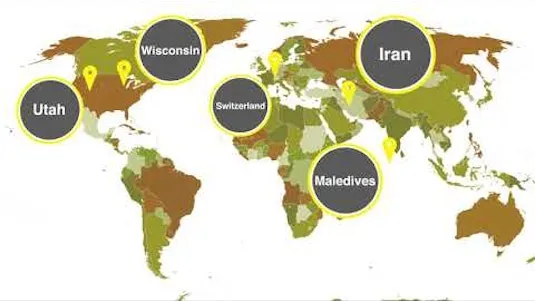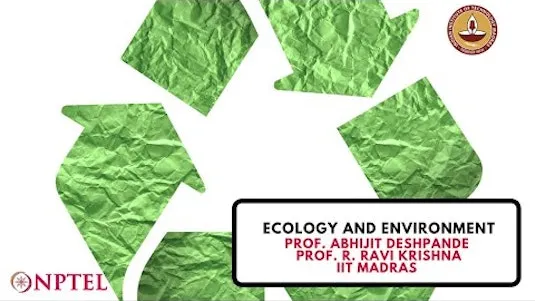
Landscape Ecology 
This course explores the concept of landscape ecology, examining how landscapes have evolved, how they are perceived, and what properties are necessary to make us feel at home. It provides an in-depth look at how landscapes function and how they can be managed. ▼
ADVERTISEMENT
Course Feature
![]() Cost:
Cost:
Free
![]() Provider:
Provider:
Edx
![]() Certificate:
Certificate:
Paid Certification
![]() Language:
Language:
English
![]() Start Date:
Start Date:
Self paced
Course Overview
❗The content presented here is sourced directly from Edx platform. For comprehensive course details, including enrollment information, simply click on the 'Go to class' link on our website.
Updated in [March 06th, 2023]
This course provides an overview of Landscape Ecology, a discipline that combines natural and social sciences to understand how landscapes function. Students will learn the modern tools of Landscape Ecology and how they are used to solve environmental problems. Leading Landscape Ecology professors will present case studies from around the world, highlighting tools and methods in Landscape Ecology. Students will gain valuable practical advice in solving existing real landscape issues.
[Applications]
Upon completion of this course, participants will be able to apply the knowledge and skills acquired to address landscape issues in their own communities. They will be able to use the modern tools of Landscape Ecology to identify and analyze landscape patterns, and develop strategies for sustainable land management. They will also be able to collaborate with other professionals to develop innovative solutions to landscape problems.
[Career Paths]
1. Landscape Ecologist: Landscape ecologists study the interactions between organisms and their environment, and how these interactions affect the landscape. They use their knowledge to develop strategies for managing and restoring landscapes. This job requires a strong background in ecology, geography, and environmental science. As the demand for sustainable land management increases, the job outlook for landscape ecologists is expected to grow.
2. Landscape Architect: Landscape architects design outdoor spaces, such as parks, gardens, and other public areas. They use their knowledge of ecology, geography, and design to create aesthetically pleasing and functional outdoor spaces. This job requires a strong background in design, ecology, and geography. As the demand for sustainable land management increases, the job outlook for landscape architects is expected to grow.
3. Landscape Planner: Landscape planners develop plans for managing and restoring landscapes. They use their knowledge of ecology, geography, and planning to create plans that are both aesthetically pleasing and functional. This job requires a strong background in planning, ecology, and geography. As the demand for sustainable land management increases, the job outlook for landscape planners is expected to grow.
4. Environmental Scientist: Environmental scientists study the interactions between organisms and their environment, and how these interactions affect the environment. They use their knowledge to develop strategies for managing and restoring the environment. This job requires a strong background in ecology, geography, and environmental science. As the demand for sustainable land management increases, the job outlook for environmental scientists is expected to grow.
[Education Paths]
Recommended Degree Paths:
1. Bachelor of Science in Landscape Ecology: This degree program provides students with a comprehensive understanding of the principles of landscape ecology, including the study of the physical, biological, and social components of landscapes. Students will learn how to use data and models to analyze and manage landscapes, as well as how to develop and implement sustainable land management strategies. This degree program is ideal for those interested in pursuing a career in landscape ecology, conservation, or environmental management.
2. Master of Science in Landscape Ecology: This degree program provides students with an advanced understanding of the principles of landscape ecology, including the study of the physical, biological, and social components of landscapes. Students will learn how to use data and models to analyze and manage landscapes, as well as how to develop and implement sustainable land management strategies. This degree program is ideal for those interested in pursuing a career in landscape ecology, conservation, or environmental management.
3. Doctor of Philosophy in Landscape Ecology: This degree program provides students with an in-depth understanding of the principles of landscape ecology, including the study of the physical, biological, and social components of landscapes. Students will learn how to use data and models to analyze and manage landscapes, as well as how to develop and implement sustainable land management strategies. This degree program is ideal for those interested in pursuing a career in landscape ecology, conservation, or environmental management.
Developing Trends:
1. Increasing use of remote sensing and GIS technology to study and manage landscapes.
2. Growing emphasis on the integration of social and ecological sciences in landscape ecology.
3. Increasing focus on the development of sustainable land management strategies.
4. Growing emphasis on the use of data-driven decision-making in landscape ecology.
Course Provider

Provider Edx's Stats at AZClass
Landscape Ecology explores the concept of landscape ecology, examining how landscapes evolve, how they are perceived, and which properties are necessary to make us feel at home. Learners can understand what a landscape is, how it has evolved, and how to perceive it. They will also understand what kind of property is needed to make us feel at home. Learners will understand how the natural and social sciences meet in landscape ecology. They will also learn how innovative and collaborative approaches used in landscape ecology can enable land managers, planners and the public to shape landscapes for future societies.
Discussion and Reviews
0.0 (Based on 0 reviews)
Explore Similar Online Courses

Bitcoin and Cryptocurrency Technologies

Learn Moodle Basics 35

Python for Informatics: Exploring Information

Social Network Analysis

Introduction to Systematic Review and Meta-Analysis

The Analytics Edge

DCO042 - Python For Informatics

Causal Diagrams: Draw Your Assumptions Before Your Conclusions

Whole genome sequencing of bacterial genomes - tools and applications

South Asian Religions & Ecology

MGPE-014: Gandhi: Ecology and Sustainable Development


Start your review of Landscape Ecology